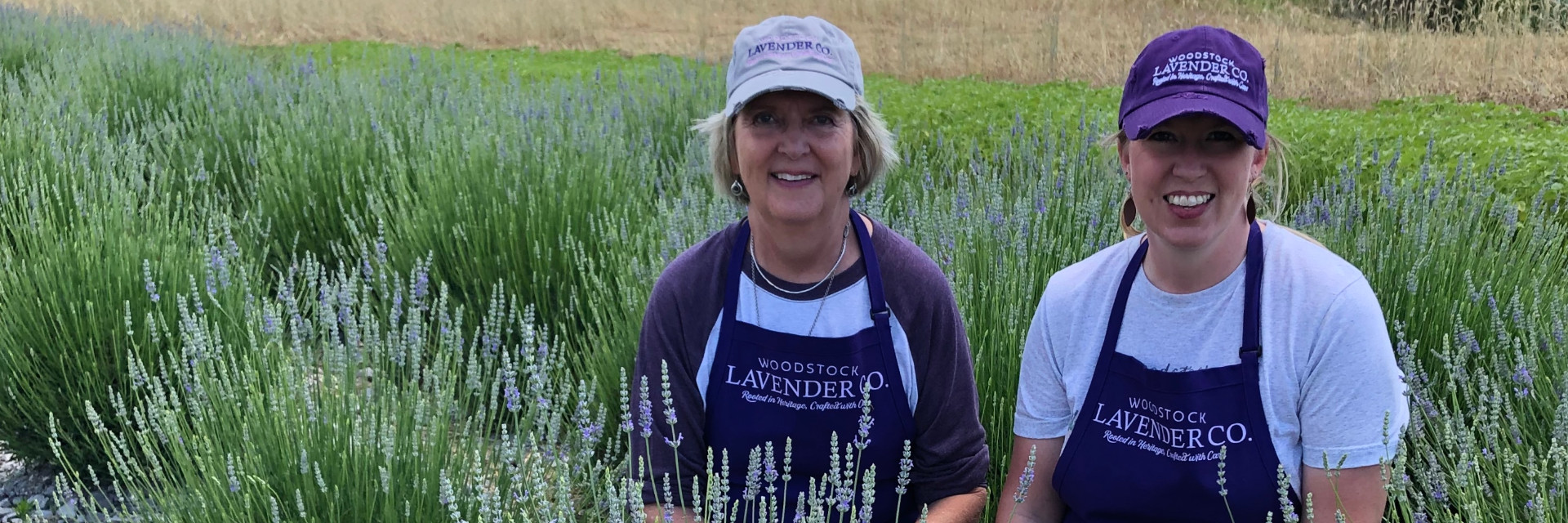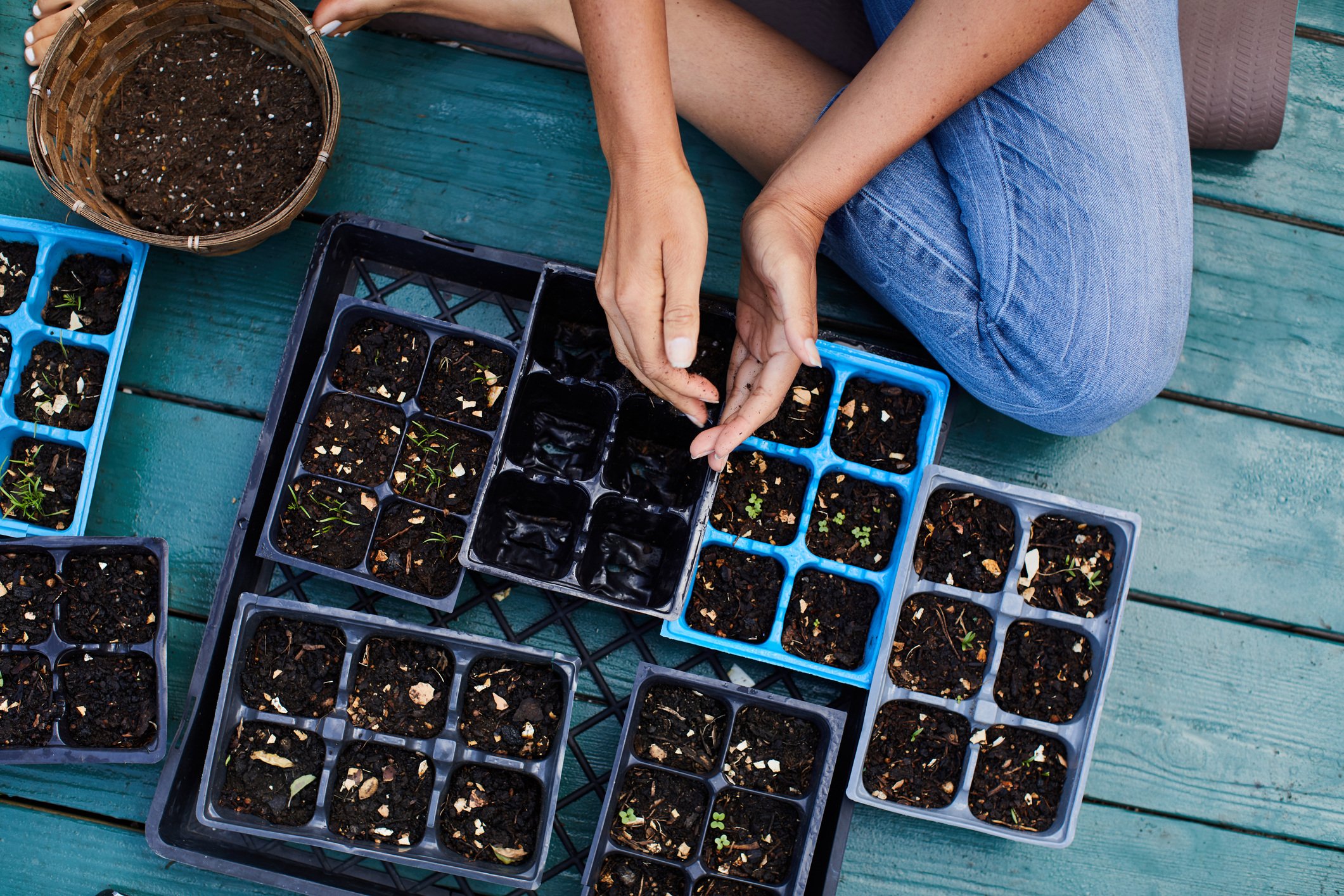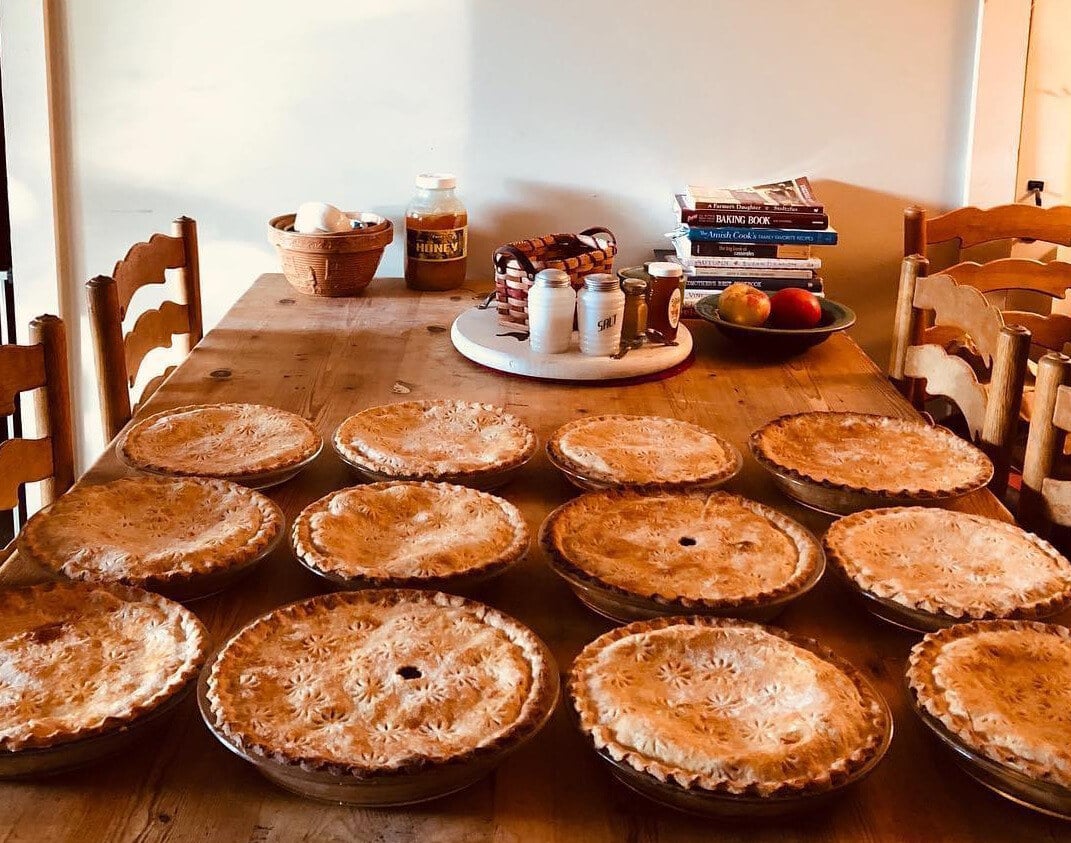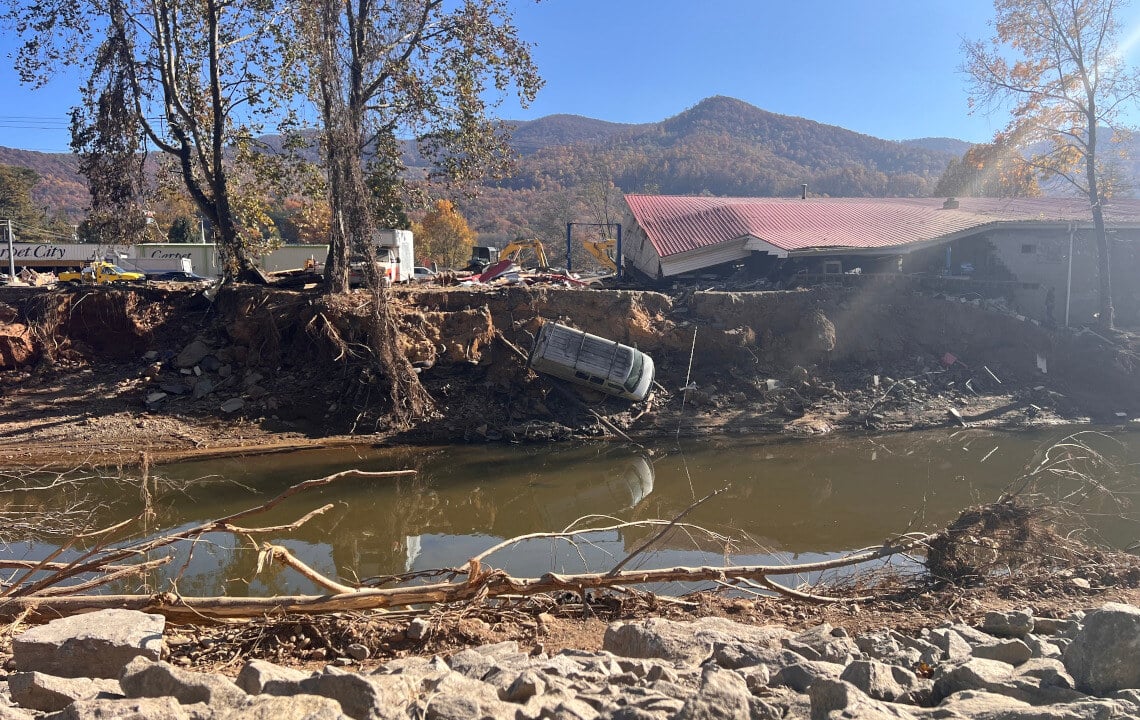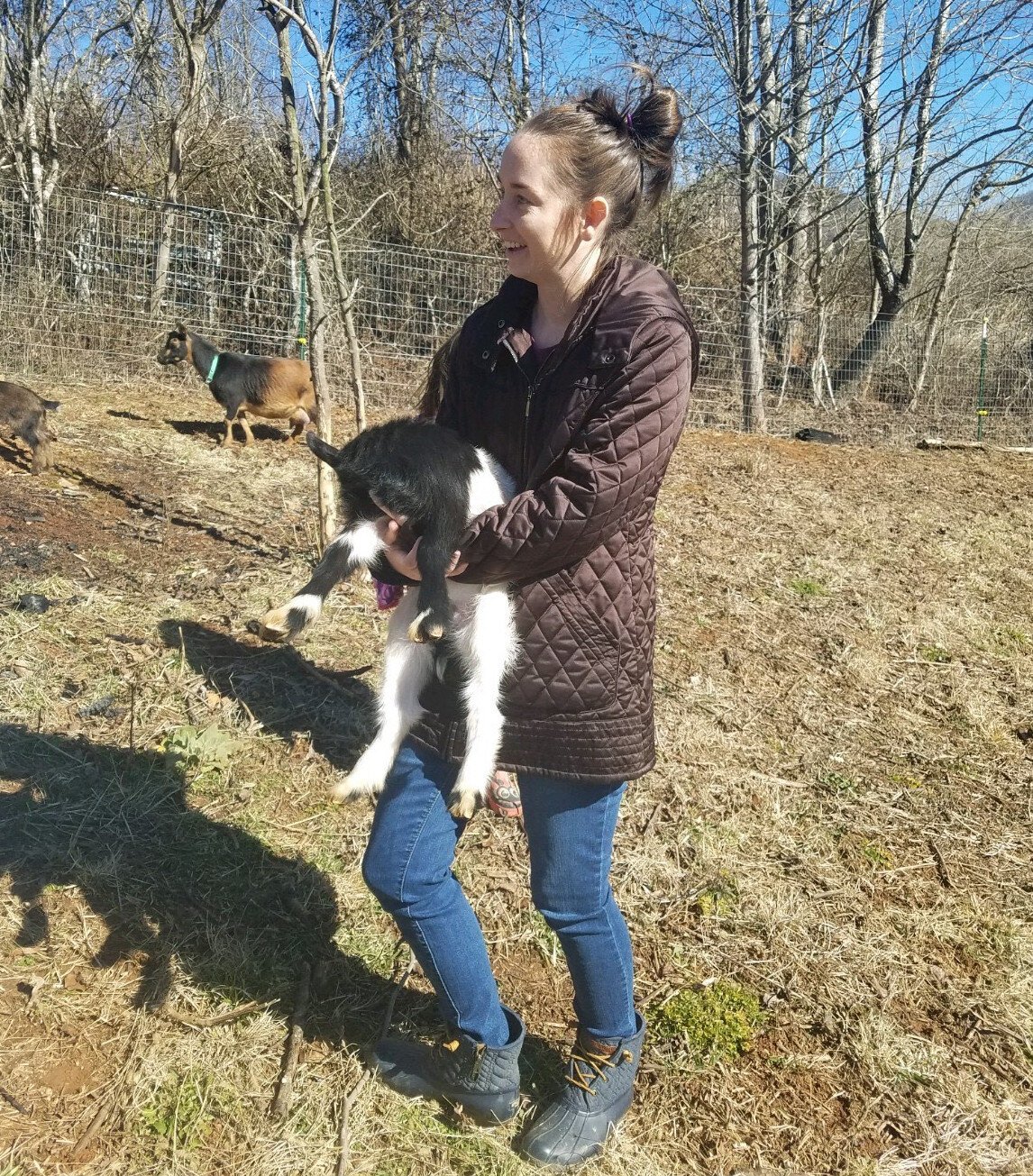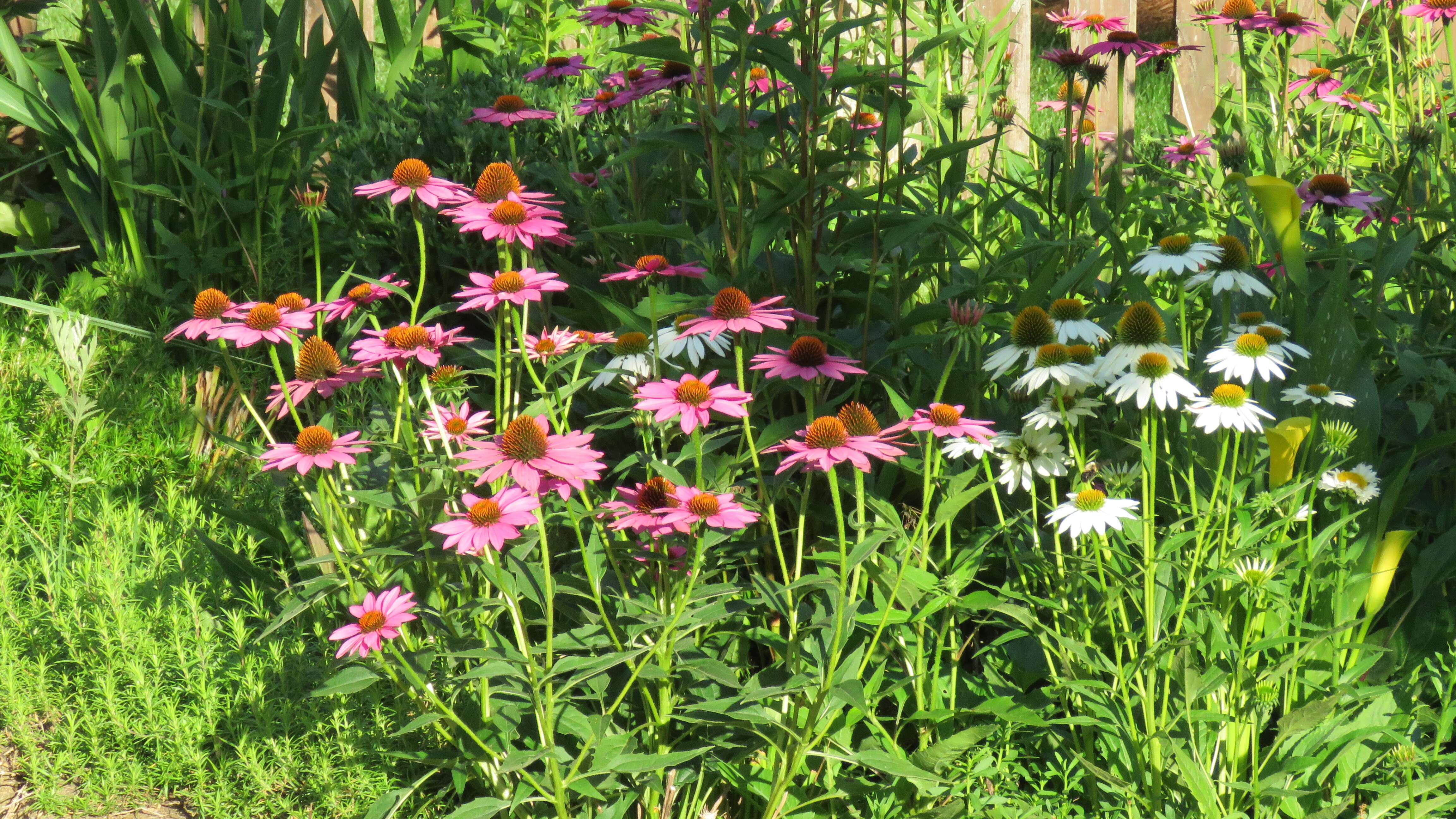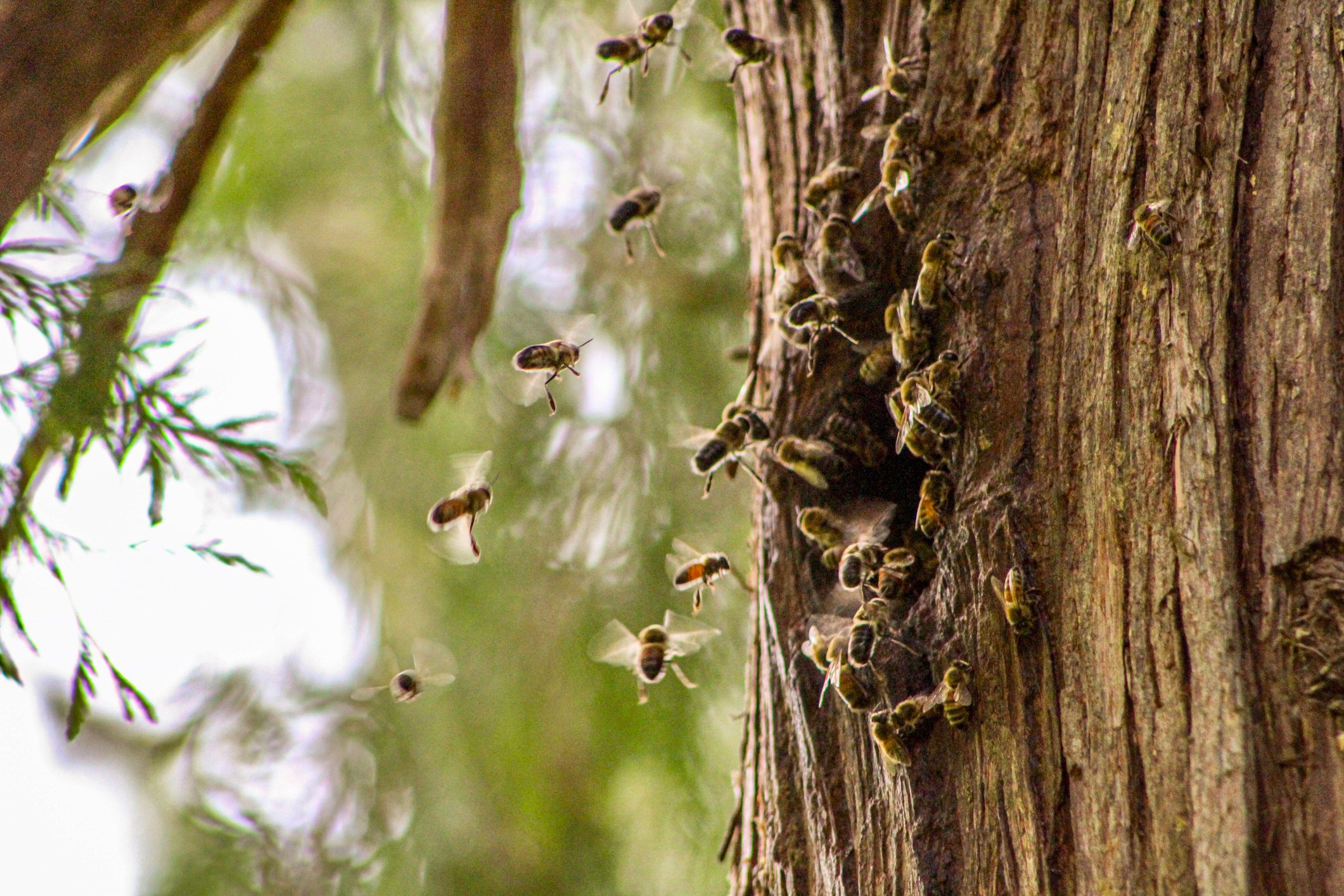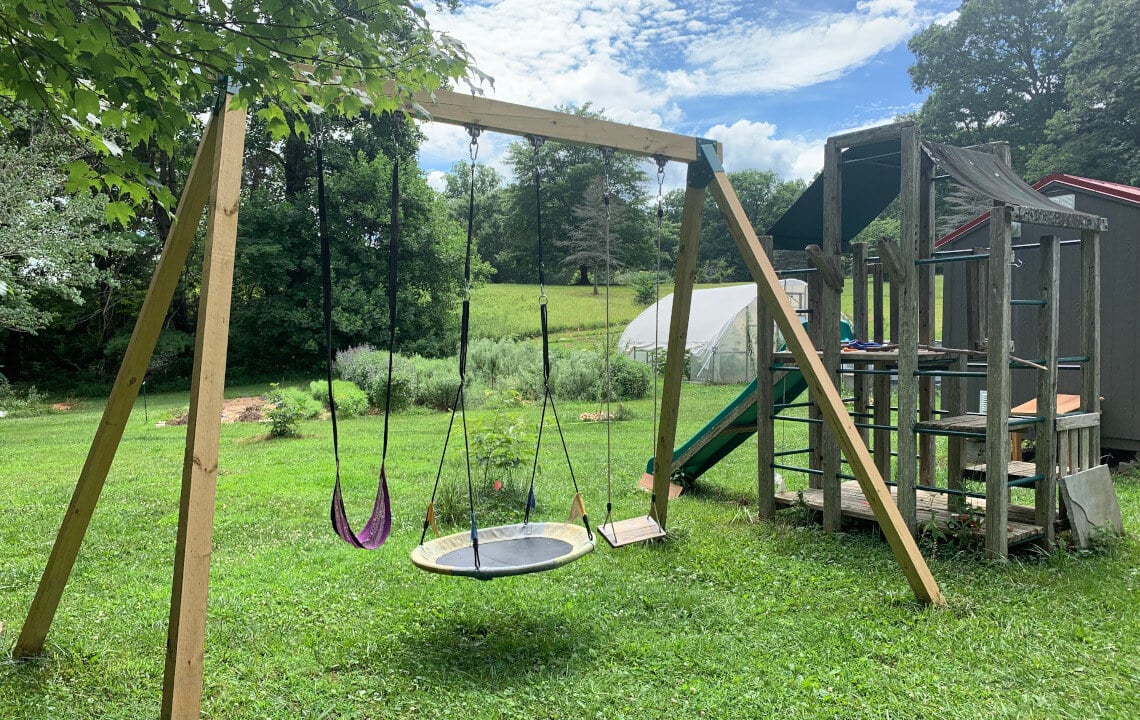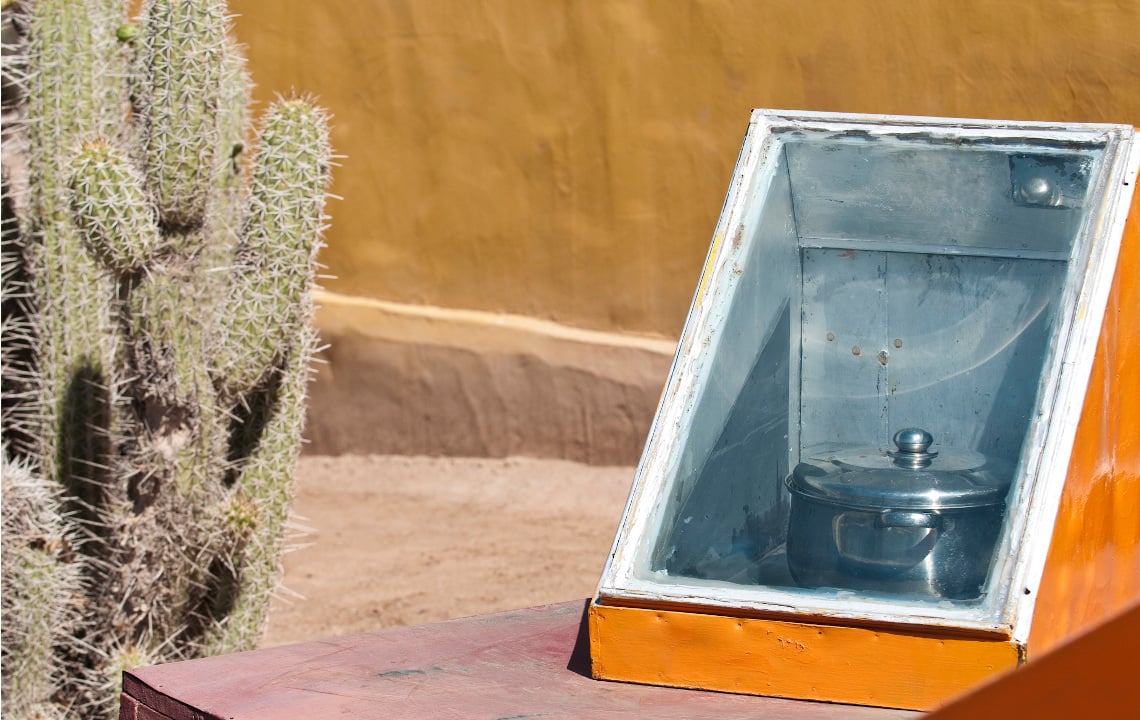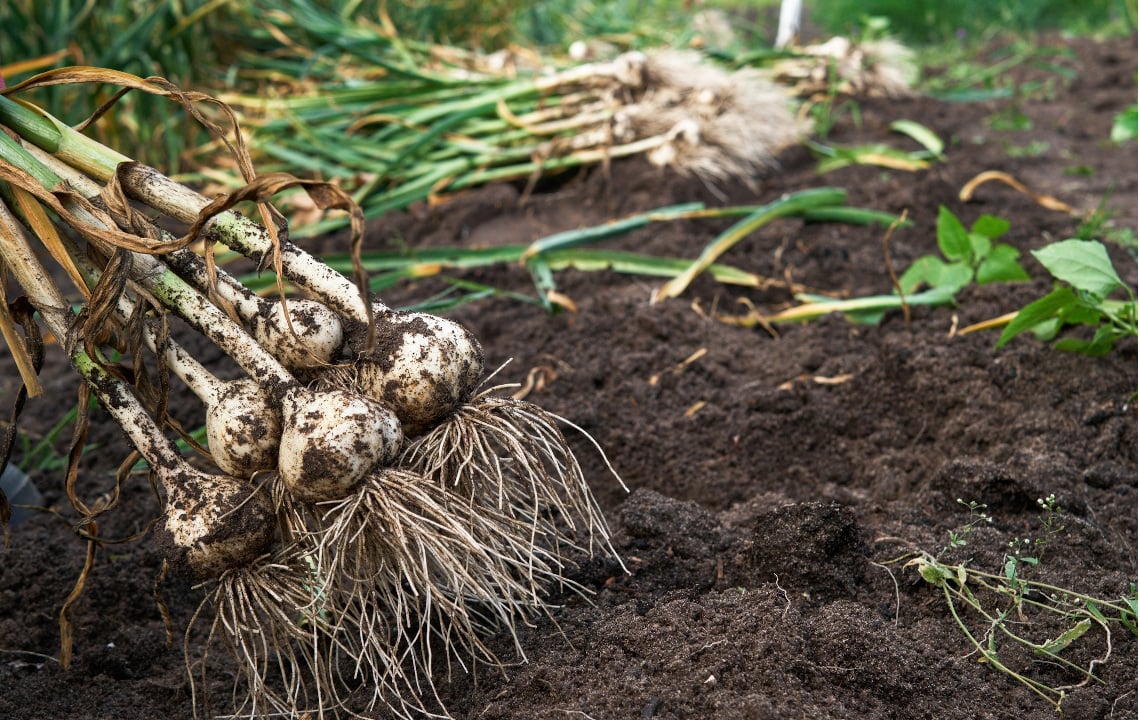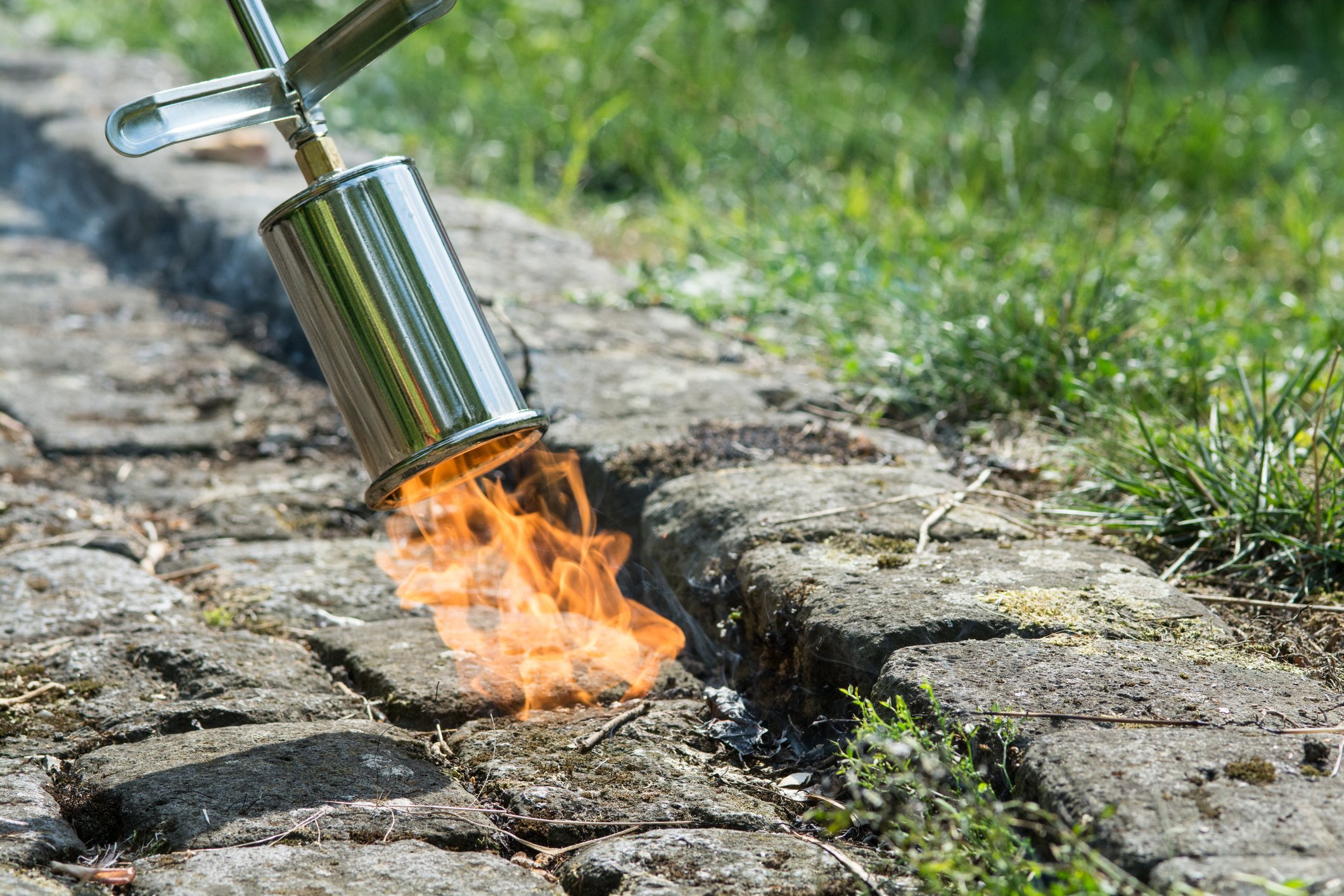One of the best things about owning rural land is finding a purposeful way to make that land work for you. Mother and daughter, Mary May and Allison Horseman share how they transformed their family's acreage into a successful Lavender farm and product company.
Thinking of starting a cottage herb farm business on your land? In the past seven years, Allison Horseman and her mother Mary May combined forces, and shovels, to create a successful lavender operation on their family farm in south-central Kentucky.
Since first considering the idea, their Woodstock Lavender Co. enterprise has grown into an enticing line of mail-order lavender products of their own creation, annual herb luncheons and a Lavender Festival—all focused around their beautiful and fragrant lavender gardens which bloom from late May into June.
In the late 1920s, Mary’s grandfather purchased the beginnings of their farm where Mary was raised. Years later, Allison and her husband purchased the house and part of the land where they now reside as fourth and fifth generations on the family “home place”.
In 2013, Allison became eager to leave her corporate life behind and began to explore other farm-based ways to make a living.
“I wanted to honor the agricultural roots that run deep in both my mother and father’s sides of the family and do something on our 8-acres,” Allison said.
Meanwhile, Mary had read an article on two women in a Farm Credit cookbook (2011: find it online here) who were growing lavender on a small 5-acre plot, and suggested the idea to her daughter. “If they could do it, why couldn’t we?” Mary enthused.
Why Lavender?
Lavender fans know the herb is highly prized for its fragrant, therapeutic and even culinary properties. As one of the herbs included in the infamous “Herbes de Provence” blend, it is both pungent and piney while infused with its own intoxicating and incomparable fragrance.
Herbalists prize it for its calming effect and in France it is not uncommon to find fresh lavender sprigs in window sills to keep out scorpions. Plus, its oil makes an excellent anti-tick preventative.
With their open and scenic farmland as backdrop, land near the house and farm buildings at the Woodstock Lavender Co. has been cultivated with 11 varieties of lavender which receive full sun year round. 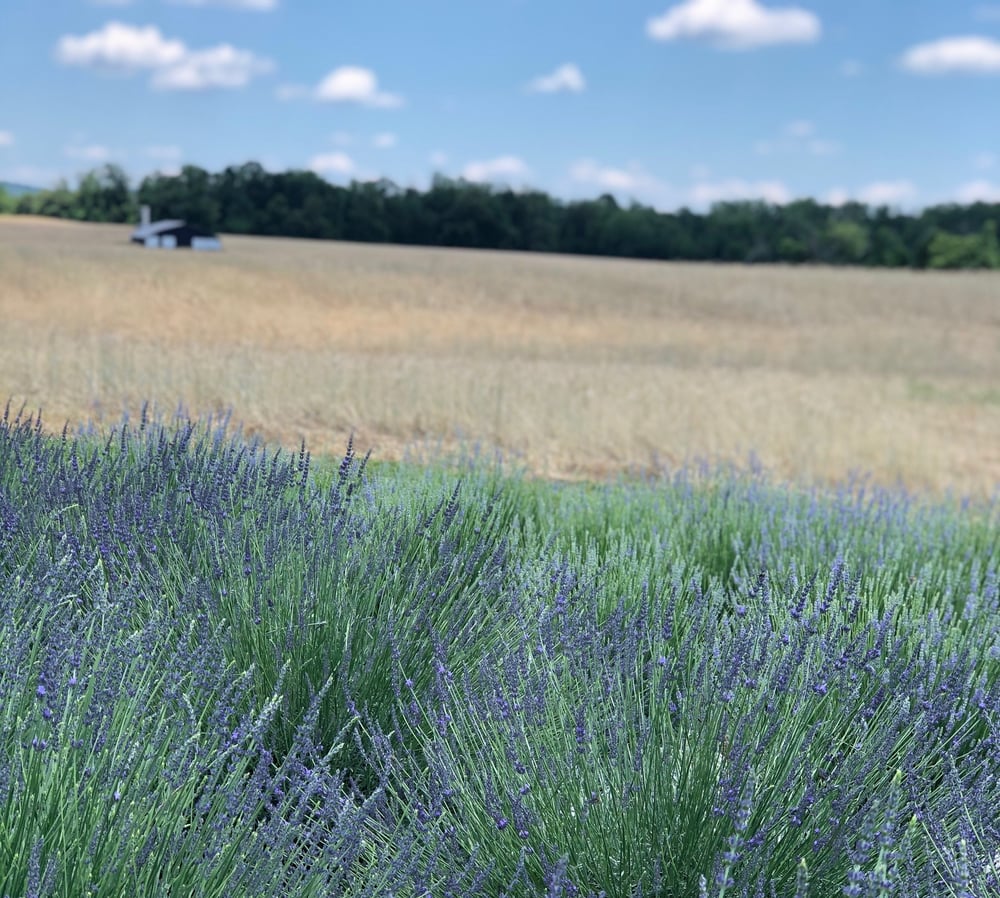
“We were intrigued by the thought of growing lavender in Kentucky. When we began thinking about planting lavender, we weren't aware of many lavender farms in the state and truly there weren't many. We visited another Kentucky farm growing lavender, did a bit of research and knew it wasn't really recommended for our climate, but still decided to plant about 50 plants to see how they did,” Mary added. “We loved that the herb was not only beautiful, but was unique and offered a lot of versatility.”
In 2013 they didn’t yet have a business plan and first wanted to do some trial gardening.
“It's a subtle, beautiful, useful, and peaceful herb. I think its color appeals to many people, as well as its healing and relaxing properties,” Allison added. “When you sit among the lavender plants, you can't help but feel relaxed and at peace. I also think that although it is becoming more widely grown in Kentucky, it is still a unique experience to visit a working lavender farm, even though ours is very small (650 plants) compared to what you might find in a more suitable climate.”
How to Grow Lavender in the South
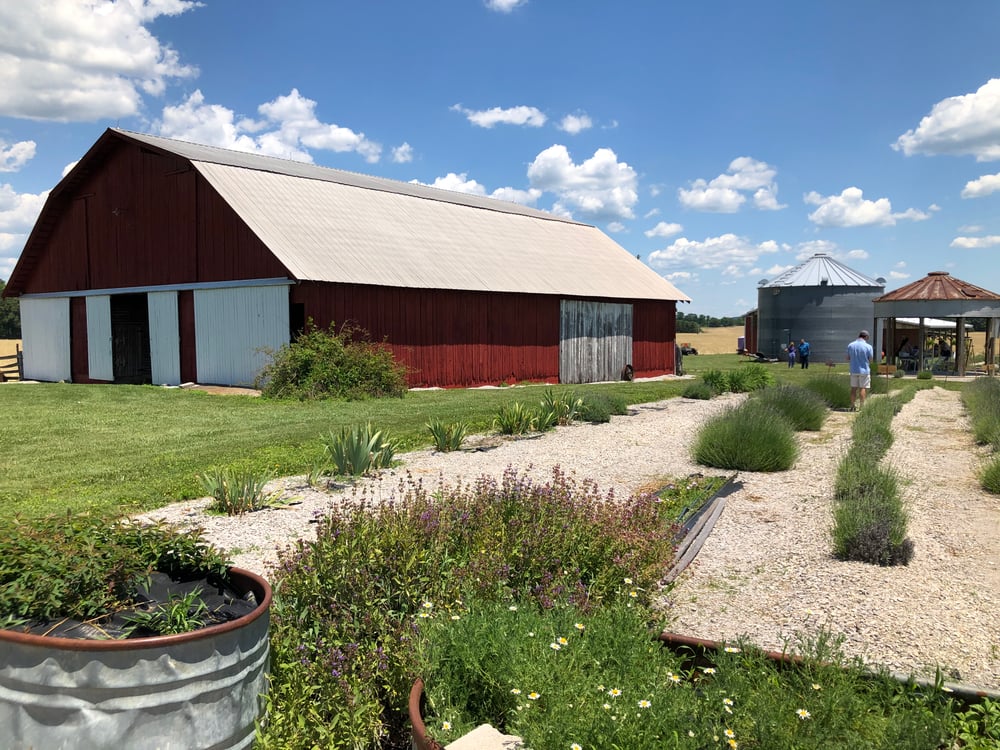
Lavender traditionally prefers a more arid landscape than hot and humid Kentucky—as in Europe’s Mediterranean region—but Allison and Mary have overcome this issue with trial and error, and adaptation. They soon discovered that plants will sometimes die out during the winter or develop a fungal disease.
“Our advice to others growing lavender is to make sure your plants are disease-free when purchased, plant in plenty of rock for adequate drainage (about 75% rock and 25% dirt: note crushed rock or pebbles) and not to overwater the plants,” Mary said. “Typically overwatering, either by Mother Nature or an individual, is the top reason for plant death.”
What Lavender Varieties Do They Recommend?
Allison’s favorite variety right now is “Phenomenal”—a large plant with deep purple and showy stems. “I like it just for its looks and especially for the farmhouse style.”
Mary prefers the highly fragrant English varieties which are valued more for culinary purposes than for show. They are also used in their growing product line which includes bath and body items, a gourmet lavender syrup and a powdered lavender lemonade mix.
Steps for Starting a Small Farm-based Business
Allison and Mary get “dozens” of calls each year from those looking for advice on how to start their own lavender farm or independent beauty brand. They tell them all the same things:
- Proceed with caution
- Research, and then research again
- Explore resources and network
- Be realistic: don’t expect to make a fortune, because you won’t
- Have outside support income
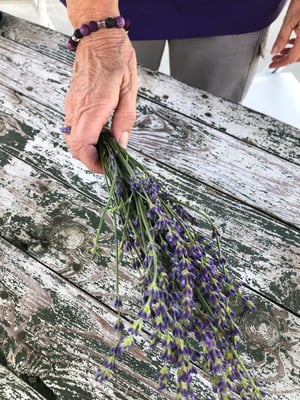
- Expect to work harder than you ever imagined
They recommend finding and utilizing as many resources as possible. One of their go-tos is the United States Lavender Growers Association—a group of about 230 growers located here, and abroad. “We all support each other, learn from each other, and help each other succeed,” they added.
Additional support can be found through local county extension offices, state agricultural support programs (like “Kentucky Proud”) and state and national agricultural organizations. [A post from their company blog, “Lavender Life,” also further answers the question of “how to?”]
Allison and Mary also advise: “Go for it!”
While admittedly not an easy business (what is?) they offer: “If someone else has that same passion, it will come through. It's certainly not a get-rich-ever business but people are rooting for small businesses.” And in these times, local farm businesses are more important than ever.
They also have the benefit of access to a certified commercial kitchen (many rural communities now provide these through local extension offices) and are certified to make cosmetics and culinary products.
“Folks have supported our farm from dozens of states and we've had visitors from as far off as Mississippi. People love farms and unique experiences. Give them something authentic and they will support it.”
What Is It Like Working With a Family Member or as Mother and Daughter?
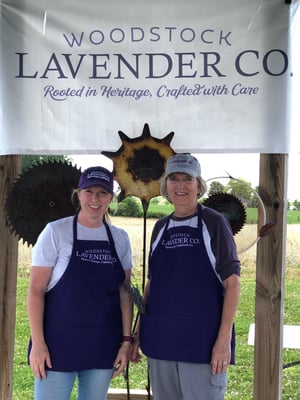
Mary and Allison both agree that working together is the best part of this business. “We are both very sentimental and we love sharing the story of the farm, and our passion for agriculture, with others. While we may have some differences, we balance each other quite well,” Mary said.
“I like to think of myself as the dreamer,” Allison added. “Sometimes that gets us in trouble as I order a thousand too many labels for a product or bite off more than we can chew, but Mom always provides the balance. She reels me back in and I encourage her to stretch what's possible.”
“Together, we usually land somewhere in the middle and that has worked well for us,” she continued. “We never set out to have a business, but God has blessed our relationship and our business, so we are just enjoying the ride and enjoying working together to build something of which we are both so proud.”
Final advice for aspiring lavender growers/rural business owners
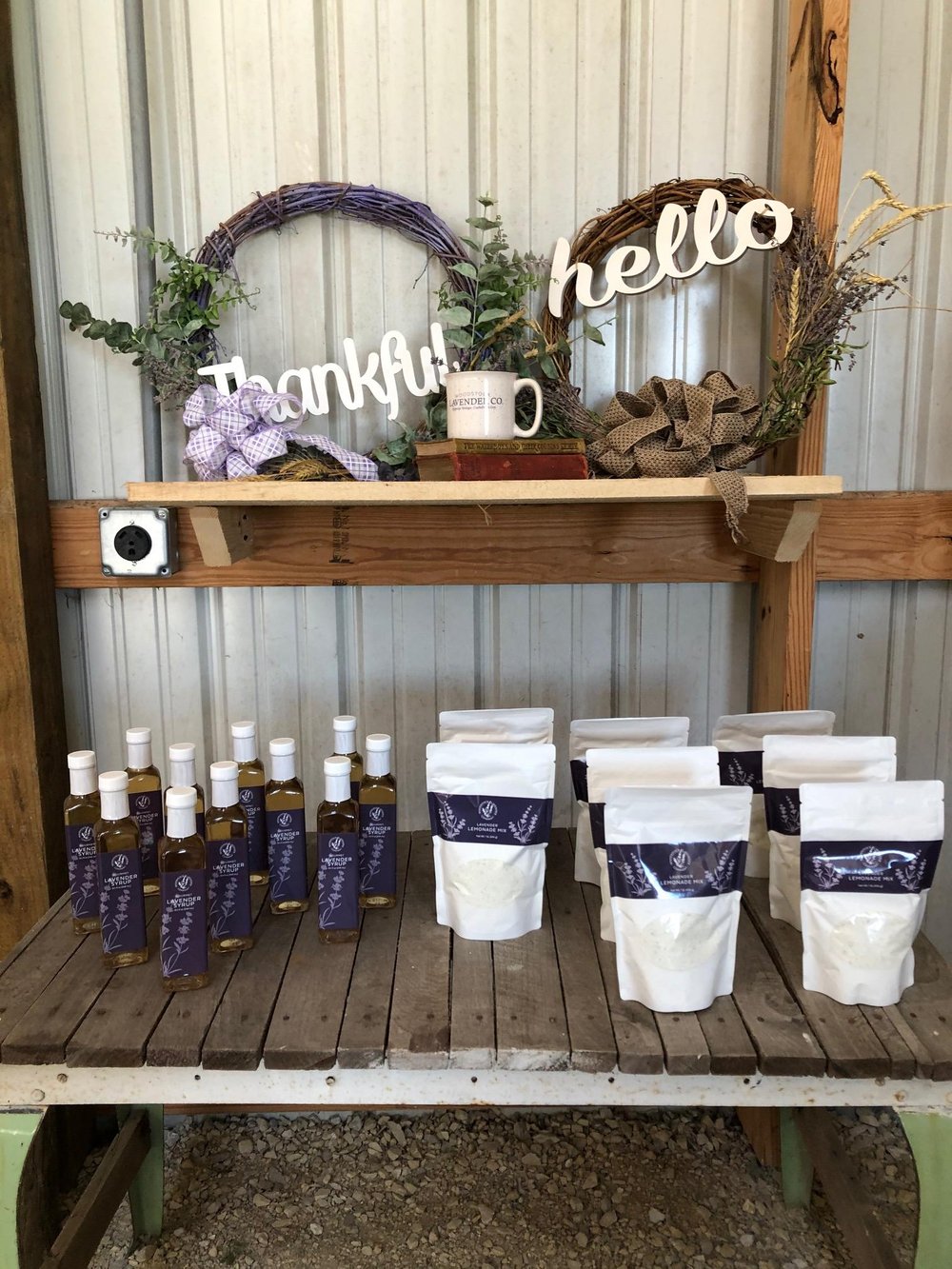
Like many farming ventures, this could not be done without another off-farm job or means of support. The company saw its first small profit in 2019, six years after the first plants went in the ground.
“While we are working toward more profitability, this certainly is something we do as a supplemental business because we love being together, we love our farm and we love lavender!”
FOR MORE INFORMATION: The Woodstock Lavender Co. typically releases details about their popular seasonal “Teas on the Farm” in early February, which always sell out quickly. Their teas are held on weekends in late May and early June while the lavender is blooming and their Lavender Festival is typically the second Saturday in June.
Small groups of ten or more can also visit in season, by reservations, from late May through mid-June. Mail order is available year round from their website and they hope to return to a normal schedule in 2021: www.WoodstockLavender.com — You can follow them on Facebook for regular updates and at their “Lavender Life” blog for occasional musings.


